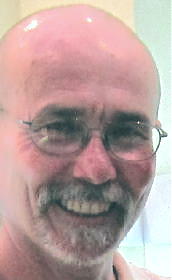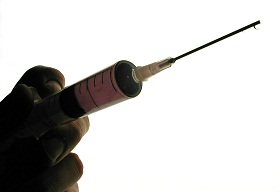-
- 24
May - (0)
Help Anywhere
You’re in a crisis. You need some mental-help, fast, and it’s not on the way. It can be wherever you are in the form of mHealth.
 Lets say your therapist’s office or Community Mental Health Center is where you live in Brooklyn, Queens or the Rockaways and you work in Manhattan or The Bronx. It can take you an hour or more to get to treatment from work when you include waiting for the two trains and the bus that get you there, effectively knocking you out of up to a half-day’s work for a daytime appointment.
Lets say your therapist’s office or Community Mental Health Center is where you live in Brooklyn, Queens or the Rockaways and you work in Manhattan or The Bronx. It can take you an hour or more to get to treatment from work when you include waiting for the two trains and the bus that get you there, effectively knocking you out of up to a half-day’s work for a daytime appointment. Good therapists are busy folks, and you want the best help you can get from them. Your employer wants you on the job. Going to a session during normal business hours is preferable to late or weekend meetings, when the therapist’s mind can be on family, his own crisis of the moment, or ice cream.
Employers hire folks to do jobs for them, not go to therapy, so they can be less than supportive. How do you do minimize time off work to see the therapist for a truly effective session? mHealth is an answer, using technology to minimize travel time and get the treatment you need to do your best at that job and life in general.
Mobile clinical health will reach $4.6 Billion annually by 2014 according to The Medical News . A good portion of that may be mental health services offered over the phone and internet…I hope you’re getting some of that by reading this over the internet right now, free.
Currently the physical health market is way ahead of mental health and addictions, as is usually the case with technology. Health monitoring with remote devices for diabetes, cardiac conditions and other chronic illness has been around long enough to make mHealth a $1.5 Billion industry today. Sessions over the phone and via webcam on the internet are being funded by the government in rural areas like upstate New York. This is a new way of doing business for us.
Clients like mHealth because they can get in a session without losing work…employers like it for that reason, too. Therapists like mHealth because they don’t really need to go to the office…they can connect with the client anywhere. Insurance companies like mHealth because they can pay less for a session (trust me, they’ll figure out how).
Mental Health folks like assessments. These tools can measure improvement over a period of time. For example, if you answer ten or twelve questions rated on a scale of 1-5 for each question, you have statistics to measure whether all those co-pays, direct payments, and insurance payments are doing any good. If treatment’s not doing any good for you, it’s only reasonable to fix the problem, the focus of discussions, and the tools employed by the client to get better.
Doing that assessment over the phone, or logging into you personal-health website with the therapist takes a few minutes and pays off in recovery.
Read more → - 24
-
- 17
May - (0)
Exercise & Mental Health
Depressed? I mean with a clinical diagnosis, not the namby-pamby “I broke a fingernail” depressed. Good News! Exercise will help you the most. Some people see relief from depression after their first exercise session. Lift heavier things, sweat a little more than the the guy next to you who’s diagnosed with anxiety…that will do you the most good. Keep at it, a consistent program is best.
 Diagnosed with high anxiety? Good news: Exercise will help you more than somebody with a low level. It’s a good idea to start going to the gym or engaging in some program now, so you can to notice the difference by the end of two to three months. Get aerobic, breathe harder, break out that dusty bike, sweat!
Diagnosed with high anxiety? Good news: Exercise will help you more than somebody with a low level. It’s a good idea to start going to the gym or engaging in some program now, so you can to notice the difference by the end of two to three months. Get aerobic, breathe harder, break out that dusty bike, sweat!Dr David Landers is an expert on this subject, and his white paper pulls together evidence since 1905 that indicates exercise can improve our mental health.
The positive effects of exercise last for hours, and by combining exercise with techniques like my earlier post on “Breathing”, and you just might feel better. Isn’t it worth a shot? Personally, I think this is true whether someone is diagnosed with mental health problems or not.
While the effect of regular exercise on these conditions varies, and you’ll see all sorts of disclaimers by scientific types that it may or may not help, and that more research is needed, the evidence I’ve seen is enough to suggest trying a program and see if you feel better. If you don’t, oh, well, the only benefit may be the delay of that impending heart attack.
We all have friends or acquaintances who tendency to get a little down…or worse.
Two friends of mine, one diagnosed as bi-polar with a long history of partial day-treatment and many different medications, the other an out of work Heating, Ventilation & Air Conditioning technician, both say they feel better when they are exercising regularly. I have many friends, some with mental health and addictions diagnoses, some without, all of them who go to the gym feel better about themselves. Nobody I know feels worse after a workout unless they’re just plain sick and need to go to bed.
It doesn’t seem to matter whether we’re diagnosed with a mental illness or not, regular exercise helps improve our sense of well-being. In addition to the physical benefits of burning the extra calories from the pasta and too much Mexican food over the weekend, exercise helps our attitude. I know I feel better when I’ve finished my workout.
I’ve used all the excuses. I don’t have time. Something comes up. Still, I somehow work in visits to the gym four to five times a week, and as long as I’m there and dressed for it, I feel funny if I don’t lift something heavy or go stand on treadmill or elliptical machine.
Read more → - 17
-
- 14
May - (0)
Breathing as Mental Health First Aid
My chest was getting tight. I had a weird feeling. It felt like I couldn’t breathe.
 Then I woke up.
Then I woke up. Why I had this anxiety event (no, not a heart attack) was irrelevant. I’m sure it was some manifestation of fear, and I’ll get around to that pervasive subject soon enough. The primary thing a person with an episode like this wants to do is get past those quite uncomfortable feelings….FAST!
Millions of people acquire tools to deal with symptoms like this, and once they tire of the misery, begin to use the tools.
And, here’s what I’ve learned:
- Sit quietly
- Relax the shoulders while taking a deep breath; ignore the surroundings
- Feel the next breath go down your spine as you draw it in, all the way to a spot just below the navel
- Let the breath come out, feeling it pour through the heart
- Repeat until you realize the symptom is gone
I know, it sounds absurd for a breath to make it to a spot below the navel…the lungs aren’t that big.
Yes, yes, we breathe out through our nose or mouth, not the heart.
There are a ton of objections for which I have no answer. All I can say is that this works. Breathing out, look out, focus on everything in the vicinity, as far as you can see, hear, feel or smell. It’s a general sort of awareness with no focus.
Many sufferers of anxiety or depression relieve symptoms with medication, and people with these problems who I talk with confirm that medications work fine, once you settle on the right one. For some this is temporary, for others it’s a lifelong affair to rectify brain chemistry that’s out of whack.
One route to take is to focus on doing something…anything. That works for a while, and anxiety returns later. For many people it gets worse.
Breathing is an effective catch-all tool to get past uncomfortable feelings. Breathing is more than air moving in-and-out, it’s a technique that some say simply refocuses the mind, others say it’s a spiritual exercise. Breathing is also the first step in most meditative techniques and yoga.
Seeking the help of a pro is always the best route if you don’t know what’s going on with feelings that are somehow…damaged. I wasn’t kidding about trouble breathing being a sign of a heart attack. Consulting a mental health professional is always the best bet for a long-term solution.
Read more → - 14
-
- 12
May - (0)
Mental Health Parity Because We Need It
It costs more out of your pocket to get well from problems of the mind or addiction, right? Insurance companies avoid paying for or charge higher co-pays or cut short programs for treatment, right? That’s the way it used to be, and could be again.
 From stage left entered our hero, “Mental Health Parity”. Put simply, this law forces insurance companies to deliver coverage for mental health services on par with physical health coverage. It’s old news because this is a 2008 law, an attempt from our legislative system to take positive action that helps people.
From stage left entered our hero, “Mental Health Parity”. Put simply, this law forces insurance companies to deliver coverage for mental health services on par with physical health coverage. It’s old news because this is a 2008 law, an attempt from our legislative system to take positive action that helps people. On May 9, 2010 a New York Times headline declared “Fight Erupts Over Rules Issued for ‘Mental Health Parity’ Insurance Law”. Insurance companies are picking holes in the law in order to avoid paying for adequate treatment for problems of the mind. I suppose we can’t blame the insurance companies for trying to keep our premiums in their pockets, but it seems reasonable that they should pay for treatment that works, and what they don’t pay, we pay.
The tragic outcome for some people is that without parity, they won’t get treatment because they can’t afford the co-pays or to go “out of network” to see a specialist who can help them. Not getting treatment can lead to physical problems in addition to their condition of the mind getting worse, or at least not getting better.
These days, most of the people who are recovering from addiction and alcoholism “went to rebab.” Every day, people are overcoming depression, anxiety and mayhem in their lives through therapy and medication. Studies are showing they are less likely candidates for heart disease, obesity, chronic pain and other physical conditions because they’re taking care of their mind. Body, mind spirit, it’s all connected.
In the long haul doesn’t it make sense to treat my anxiety now to avoid paying for my next heart attack?
In this matter, I have two heroes. Representative Patrick Kennedy from Rhode Island and Wendell Potter from Washington DC (I forgive him for that). Kennedy supports Mental Health Parity and making the recent healthcare laws as beneficial for mental health and addiction treatment professionals. Wendell Potter is an advocate with the Center for Media and Democracy. If you’re personally affected by this issue, you can take a tiny bit of action by connecting with either of these fellas.
Read more → - 12
-
- 06
May - (0)
OH, No!
The Internet’s down!
What will we do? A question for which one of those wise old people I grew up with who always had an answer (usually right) comes to mind: “What did people do before we had the Internet?”
 Hmmmm. I have to think about that. I think we waited. So, that’s what I did this morning. At other times in my life, I might have felt anxiety over that, but not this morning. I appreciate the old adage, “when the going gets tough – the tough go to lunch”.
Hmmmm. I have to think about that. I think we waited. So, that’s what I did this morning. At other times in my life, I might have felt anxiety over that, but not this morning. I appreciate the old adage, “when the going gets tough – the tough go to lunch”.In this particular vocation, I read a modicum of rather dull government documents. I get those documents off the web, so my planning consists of walking into my office in the morning, hitting a few sites on the web, and finding something I think is necessary or interesting in our business, and opening a blank document. I get a number of my quotes and topic information off the web, but not this morning…the Internet’s down!
I cannot imagine sending off to a government agency for a mailing, or going to some office to retrieve a document I may or may not be able to make sense out of and turn into something interesting or relevant.
I’d planned to write a piece about SAD, Seasonal Affective Disorder: Is it Real? Since it didn’t, I’m laying feelings and opinions out there. We all have those, and as we all do, I find mine most interesting and valid. Perhaps they are not so interesting or relevant to your life, tough cookies, the Internet was down!
Read more → - 06
-
- 04
May - (0)
Treating Body, Mind & Spirit
Insurance companies are evil.
 That’s the feeling I get whenever I write a check for a premium. I get that feeling when I’m denied payment for a medication because it’s out of formulary or the co-pay goes up. Insurance companies encourage fast-food treatment for what can be lifelong difficulties…when we take that approach with nutrition, we end up obese. When we take that approach with behavioral/mental health and addiction/alcohol problems prescribing only medication as the answer, we can end up as zombies with mind-problems that are hidden and never resolved, or chronic conditions that we don’t learn how to live with.
That’s the feeling I get whenever I write a check for a premium. I get that feeling when I’m denied payment for a medication because it’s out of formulary or the co-pay goes up. Insurance companies encourage fast-food treatment for what can be lifelong difficulties…when we take that approach with nutrition, we end up obese. When we take that approach with behavioral/mental health and addiction/alcohol problems prescribing only medication as the answer, we can end up as zombies with mind-problems that are hidden and never resolved, or chronic conditions that we don’t learn how to live with. Twenty years ago I was a privileged patient of a psychotherapist in Ashland, Oregon. At the time, I was having some trouble with life that was rooted in low self-esteem. I couldn’t pay the bills no matter what my income; everything I did seemed somehow wrong. I attended individual therapy and a men’s group and also joined a self-help group, and over the course of years I made significant changes that affected my larger future. I also started meditating. In short, a combination of therapeutic, behavioral and spiritual efforts worked.
By the way, I’m not a Christian, Buddhist, Hindu, Moslem or a devotee of any religion…I just meditate regularly. It works for me.
Since then, I temporarily added medication into the mix for some anxiety I was experiencing after a heart attack, along with individual therapy and self-help. The medication worked. I no longer need it or take it, and I don’t participate in individual therapy, it worked, too.
Today, I have a good life, and a holistic approach to treating the body, mind and spirit is integrated into that life. Others can and do find this successful, too.
A friend of mine recently couldn’t get the medication mix right for his depression. It took day-treatment to get him on track. Now his medication is right, he made some behavioral changes and it worked…depression faded away.
There’s too much evidence around me about what works to ignore it.
Insurance companies exist to make money. Wendell Potter is watching them, but still, they will demand fast-food treatment because it’s cheaper for them. Effective treatment takes time and a combination of efforts targeted toward body, mind and spirit.
The patient has to want to get better, and that’s an inside job. From what I’ve seen, it’s usually a patient choice to recover by taking the tough road. He has to do what it takes to recover, body, mind and spirit…or just take drugs and even though the patient doesn’t realize it, be slowly changed into a different person.
Read more → - 04
-
- 29
Apr - (0)
Addiction Answers
Late in the Viet Nam conflict, I was loitering around the hootch when one of the troops burst out of the low slung building to spew vomit across the compound.
 Gross.
Gross. That was my first-hand introduction to the effects of smoking heroin. It turns out that the nausea is part of the deal, it’s necessary if you want to get the most out of the high. This is a physical reality of opiate addiction.
Opiate addiction was an extensive problem for American soldiers. The disease of addiction destroyed morale, took lives, and killed my peers. It was the quest to get out of one’s own skin, to be somewhere, to be somebody we were not. Viet Nam was a good training ground for that.
Let’s say my recovering friend, we’ll call him Kenny, says that explanations of what it’s like to be an alcoholic/addict are lost on folks who haven’t been in the user’s shoes, so those with the disease just give up trying to explain. Delusions and hallucinations are part of the high…they keep it interesting for the user. To lose feelings of inadequacy, the feeling that the user doesn’t belong where he is, and get the rosy glow and elevated mood anybody who takes opiates for pain can experience are what the alcoholic/addict thinks they seek. Kenny says that users are really “filling the hole in the soul”, or “getting out of themselves”.
I read a cover story in Time magazine when I was 18 years old that explained that researchers had found the “alcoholic gene”…complete with a spectrograph featuring the twisted, gnarled gene. Appropriate, eh? I was sold, and still agree that alcoholism is genetic.
Kenny’s winning me over to the theory that if you drink enough and use enough drugs, you can warp that gene in a person born a “normie”. This leads to fun in addiction land, as defined by the book Alcoholics Anonymous: a mental craving accompanied by a physical allergy, which gets worse, never better. When an addict or alcoholic uses, a chain reaction is set off. They crave the great drug: MORE! When they don’t get their drug, the user gets sick; that’s the physical sickness most folks identify as the problem, especially concerning opiates like Oxycodone. Kenny says the general public has no idea that there’s more to addiction than the physical symptoms, and the drive to drink and use is overpowering, the user must fill that hole in his soul.
Kenny has friends who would kill to get the kind of hallucinations you may get when taking oxycodone…they love talking with people who aren’t there…people who are there are frequently a pain in the butt who just want the user to quit using drugs and alcohol. Their nightmare is who they have to face after the hallucinations go away…themselves.
Finally, Kenny says the oxycodone and other medications found in medicine cabinets across the country are like heaven in a bottle to an addict. If you don’t need them for pain, dump them. Anybody who has a problem is driven to look in that cabinet by an unstoppable compulsion. Leaving them hanging around is called enabling my friend, which would call for another story featuring a different friend, we’ll call her Marie.
Read more → - 29
-
- 26
Apr - (0)
The Power of Advocacy
Alcohol and substance abuse treatment is not a “big money” field. I remember people calling it “the underbelly of healthcare”, because it seemed to be the last stop in the government money stream, with continuously decreasing support in government.
 Insurance companies even set an entirely different set of rules for treatment with ever decreasing reimbursement.
Insurance companies even set an entirely different set of rules for treatment with ever decreasing reimbursement.Increased funding and equitable insurance payment has become available for treatment lately, due to lobbying efforts and key new advocates in government. It hurts to lose effective advocates. One of those advocates in a position of power has been Tom McLellan, Deputy Director of the White House Office of National Drug Control Policy (ONDCP) who plans to resign in May. He says, ”There’s no deep dark secret here — I’m just ill-suited to government work,” according to Alcoholism and Drug Abuse Weekly.
McLellan has been a leader in the science of treatment, and his organization developed a handy tool, the Addiction Severity Index (ASI). Anybody who has seriously looked for mental health or substance abuse help has taken an assessment. The ASI is an assessment on steroids, designed to assign a level of addiction to alcohol or drug use. It’s in the public domain (free), so it is in wide use, even required by some government systems. The ASI is a scientific advancement that helped establish assessments as required tools to measure outcomes of treatment.
McLellan can’t be faulted for not having an open mind. He is a researcher who knows what he’s talking about, even acquiescing in a recorded talk for NIATx that faith-based treatment was effective…an opinion based on scientifically analyzed data.
People traditionally work in this area of health care because they want to do some good. These good people lower crime (clean addicts steal less), and pull people out of the gutter to build lives. CEOs and CFOs of corporations, people serving ice cream, people from all walks of life are recovering from alcoholism and drug addiction due to McLellan’s and other scientists’ efforts.
There is a hole in government with McLellan’s wisdom exiting the ONDCP. What larger-than-life advocate will fill that hole?
Read more → - 26
-
- 22
Apr - (0)
Value of “Meaningful Use” Incentives to You
Your choices for mental health and addictions treatment could be severely limited by financial pressures very soon.
 People search for therapists, and it can be a job to find one who fits. Neighborhood counseling centers are a great choice; delivering personal care. The counselor really knows you and spends time on your case. Many of these small businesses are in jeopardy because of today’s financial pressures and the requirement to implement an expensive, certified Electronic Health Record (EHR).
People search for therapists, and it can be a job to find one who fits. Neighborhood counseling centers are a great choice; delivering personal care. The counselor really knows you and spends time on your case. Many of these small businesses are in jeopardy because of today’s financial pressures and the requirement to implement an expensive, certified Electronic Health Record (EHR). The EHR can make it possible to collect additional Medicaid incentives that help keep your therapist in business. The EHR is a major aid to increasing efficiency and quality in healthcare, and can help your neighborhood therapist serve more people with close, personal attention. This technology keeps your case information at their fingertips (safe and secure), and reduces energy placed on expensive financial and credentialing audits, then puts that human energy back into personalized service. In short, the EHR is a survival tool.
The health system is biased against Mental Health and Addictions, even with adoption of the HITECH Act that offers funding for the EHR, and other Acts that increase health insurance availability and force insurance companies to treat and pay mental health and addiction services equal to physical health conditions.
Good news arrived recently. Representatives Patrick Kennedy and Tim Murphy introduced a bill to congress extending HITECH funding for EHRs to many neighborhood counseling centers and other mental health and addictions treatment environments. The government money has been sitting there, unused, and this bill makes it available to more of these businesses.
Over the next couple years, the American Recovery and Reinvestment Act (Obama’s big money for health care) will offer “meaningful use” incentives for health care. With passage of the Kennedy/Murphy bill, and proof these mental health and addictions treatment centers use current, certified technology in their practice’s EHR, they earn more survival money from Medicaid incentives. If they can’t, they risk unprofitability and why have a business if you can’t make a profit?
Talk with your counselor about this. They probably don’t know about the funding that passage of the Health Information Technology Extension for Behavioral Health Services Act of 2010 would create. They may want to talk to their congressperson and senator about getting it passed.
Read more → - 22
-
- 22
Mar - (0)
On LineTreatment
On March 11, 2010, BlueCross BlueShield of Western New York (BCBSWNY), BlueShield of Northeastern New York (BSNENY) and American Well™ Inc agreed to provide on line care in upstate NY. This is good news for rural folks reported by Medical News.
I immediately suspect less than altruistic motives and question whether this will degrade outcomes since it’s headed up by insurance companies, leaders in the evil empire with a primary concern of quarterly numbers. I’ll wonder for a while, unless on line treatment is instituted immediately in enough places with rapid-cycle testing that can produce measurable data in three to six weeks. I’ve been a proponent of this sort of program implementation for treatment and software since the early 90’s. I’ve tried it, it works. It turns a situation whereby people must live with the final product into one that encourages fine tuning of the tools to produce the best outcome. Will rapid-cycle testing be used? It’s hard to say with huge companies, and could depend on who’s in charge of the project and current policy. Perhaps this is a newsworthy item for all you cub reporters out there…
Improving outcomes depends on a relentless search for the best way to treat people with problems. If on line treatment helps people get better, it will grow. Issues of saving both agencies and insurance companies money while producing acceptable outcomes in projects like this will determine on line treatment’s role in the future.
With over 1,000 clients, eGetgoing has been using on line treatment successfully a number of years, and it’s covered by insurance. Since it’s backed by CRC Healthcare, which is a pretty large company in the addiction treatment world, and headed up by their CTO, Jay Raimondi, I’d assume they have outcomes data to not only support continuing the business, but also proving outcomes to the insurance companies they do business with. But this is another story for another day.
It looks like on line treatment, telemedicine, gadgets and gizmos are in the treatment world to stay.
Read more → - 22
